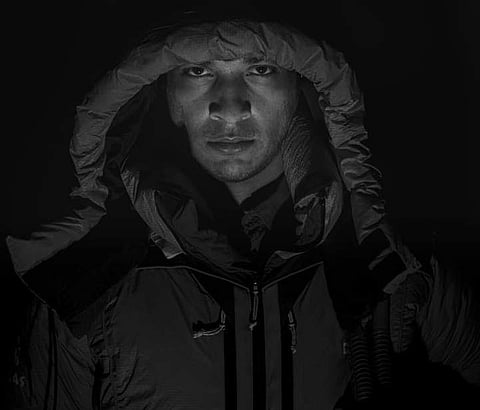

In 2010, Arjun Vajpai, a 16-year-old became the youngest Indian to scale Mt Everest. Today, at 27, he is attempting the same feat once again, this time without supplemental oxygen, a feat that is life-threatening, extremely dangerous and needs unimaginable endurance. If successful, Arjun would be the only Indian to achieve the feat. Speaking to us from the base camp in Kathmandu, Arjun says, "I'm pretty excited because I was here almost 11 years ago when Mt Everest opened its doors for me. I'm keeping my fingers crossed, hoping I can reach the summit this time as well. There are very few people who have been able to endure this feat, climbing the world's highest mountain without supplemental oxygen. No Indian has ever done this. So I'm trying to put our flag up there."
Arjun has been on a training mission for the last 11 years, since his first expedition. Since then, he's done twelve expeditions and this will be his thirteenth. He says, "This climb is going to be a culmination of all that I've learnt over the last 11 years. All my experience is going to come in handy. But it's going to be difficult because when you go without supplemental oxygen, everything changes." Last year, Arjun tested himself and was able to climb up to 7,374 metres without supplemental oxygen. This year, he will attempt more than 8,000 metres. "It takes way more than physical preparation, it's the mental preparation that counts more. You have to have the experience to manage your body at such low oxygen levels," he says.
READ ALSO:
Speaking about his daily routine, he says, "My routine involves extensive endurance training that is about 60-70 km cycling a day, four half-marathons a day. Apart from that, it's just the right mindset and the right experience. The challenge starts from 8,600-8,848 metres. The last 248 metres is what separates the world's highest mountain from the world's second-highest mountain and this part is the most technically difficult part to climb because the human body is literally dying at that altitude." He goes on to add that even IQ levels drop so low that a basic calculation of two plus two takes a while.
Arjun and his team did a winter expedition earlier this year, but unfortunately, they couldn't make it to the summit. "That was a hardcore training in alpine style, without the use of sherpas. We were carrying heavy backpacks up and down the mountains." With COVID sparing no one, the mountaineering community also had to halt their expeditions for a whole year. "In order to keep training, we would climb a 20-floor building almost 162 times to be able to reach the altitude of Everest. I hope it pays off," says Arjun.
Apart from being a full-time mountaineer, Arjun also runs an adventure camp for over 200 schools, including about a lakh students as part of the Arjun Vajpai Adventure Academy. He has also written several books and delivered over 2,000 motivational talks. He also runs a manufacturing company that manufactures Olympic-level climbing walls.
